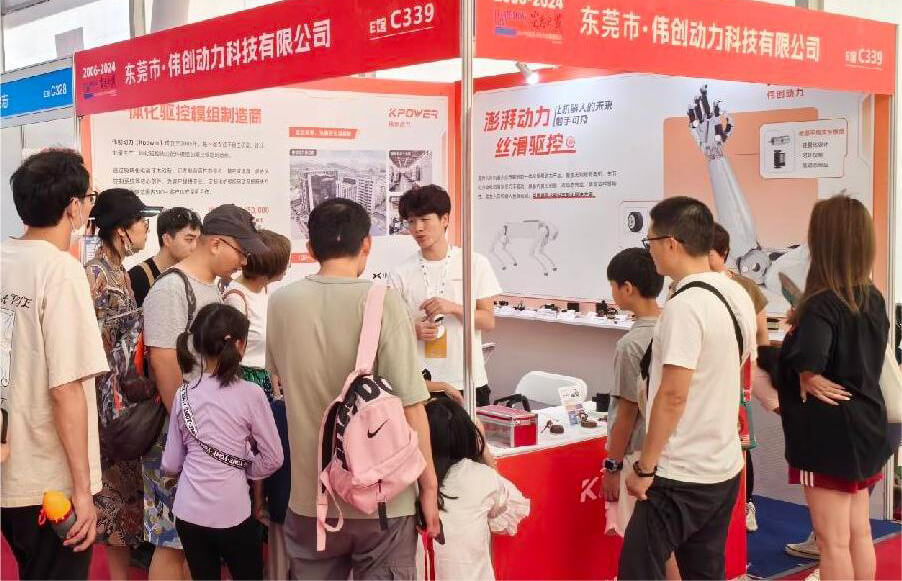In the vast universe of industrial automation and robotics, few components play as pivotal a role as the servo motor. Among the myriad types of servo motors, high torque servo motors stand out for their ability to deliver exceptional power, precision, and reliability — qualities that propel the frontiers of manufacturing, aerospace, military, and even consumer electronics forward.

Imagine a robot arm delicately assembling microchips, or an autonomous vehicle navigating complex terrains with unwavering stability. At the heart of these feats lies a high torque servo motor, tirelessly converting electrical signals into fine-tuned mechanical motion. Its ability to generate substantial rotational force while maintaining rapid responsiveness makes it the backbone of today’s most demanding applications.
Understanding High Torque Servo Motors
To appreciate what makes these motors special, it helps to break down the fundamental concept of a servo motor. Essentially, a servo motor is a rotary actuator that provides precise control of angular position, velocity, and acceleration. Unlike standard motors, servo motors incorporate feedback mechanisms—commonly encoders—that continuously inform the control system about the motor's exact position. This feedback loop enables incredibly accurate motion control.
Now, when we talk about "high torque" servo motors, we're zeroing in on models designed to deliver significantly greater rotational force compared to standard variants. These motors are characterized by their substantial torque ratings, often ranging from a few Newton-meters to hundreds, enabling them to handle heavy loads or demanding acceleration profiles.
What Sets High Torque Apart?
While many servo motors excel in speed and precision, high torque variants are specifically optimized for strength and load-bearing capacity. This involves a lot of engineering finesse—using robust materials, enhanced winding designs, and advanced gearing systems. The result is a motor that can sustain high mechanical output without overheating, losing efficiency, or sacrificing accuracy.
For example, in industrial robotic arms that lift and manipulate hefty objects, high torque servo motors provide the raw power necessary to handle these tasks while maintaining fine positional control. In areas like CNC machinery, they ensure consistent cutting depths and smooth operation despite resistance from materials or complex tool paths.
Design and Technological Attributes
Several key features make high torque servo motors stand out:
Enhanced Winding Configurations: These motors employ thicker, more robust windings to generate greater magnetic flux, thereby producing more torque.
Superior Magnets: Permanent magnets made from rare-earth materials like neodymium are often used to boost magnetic fields, helping generate higher forces efficiently.
Advanced Gearing Systems: Sometimes, high torque motor assemblies include gearboxes—such as planetary gearsets or harmonic drives—that multiply torque output while minimizing backlash and increasing positional accuracy.
Thermal Management: To sustain high power output, these motors incorporate efficient cooling mechanisms—be it air, liquid, or hybrid systems—to prevent overheating during prolonged operation.
Materials and Build Quality: Use of durable, high-strength materials ensures resistance to wear and tear, maintaining consistent performance over extensive operational hours.
Application Spectrum
The versatility of high torque servo motors allows them to be integrated into a multitude of industries and applications. For example:
Robotics: Large-scale industrial robots used in automotive assembly lines employ these motors to manipulate heavy components with surgical precision.
Aerospace: High torque servo motors power control surfaces, actuation systems, and stabilization mechanisms, where both strength and reliability are non-negotiable.
Manufacturing Equipment: They drive presses, stamping machines, and CNC machines, ensuring high accuracy while exerting the necessary force to deform or shape materials.
Underwater Vehicles and Submarines: These motors offer robust performance in demanding environments, facilitating precise navigation and maneuvering.
Medical Devices: From surgical robots to advanced imaging systems, high torque servo motors contribute to the delicate balance of power and precision required in healthcare technology.
Choosing the Right High Torque Servo Motor
Selecting the perfect motor involves balancing multiple factors—torque requirements, speed, size constraints, energy efficiency, and control complexity. A critical aspect is understanding the load profile and operational environment. For instance, a servo motor used in a robotic arm might need rapid acceleration capabilities, while one in a conveyor system may prioritize sustained torque.
Furthermore, the control system's sophistication plays a role. High-performance applications demand advanced controllers capable of fine-tuning motion profiles, ensuring smooth acceleration/deceleration, and adapting in real-time to dynamic load changes.
Emerging Trends and Innovations
The field of high torque servo motors is continually evolving, driven by technological advances and industry demands:
Brushless DC (BLDC) Technologies: Many high torque servo motors now leverage brushless designs, which offer higher efficiency, longer lifespan, and reduced maintenance compared to brushed motors.
Intelligent Control Algorithms: Combining servo motors with AI-driven control algorithms enhances predictive maintenance, fault detection, and adaptive operation.
Nanomaterials and Coatings: Integration of cutting-edge materials reduces weight and increases thermal performance.
Modular and Customizable Designs: Manufacturers are now creating highly adaptable systems to cater to specialized industrial needs, from compact applications to massive heavy-duty tasks.
The Road Ahead
As automation accelerates, the demand for high torque servo motors with even greater power density, efficiency, and intelligence will only grow. They are poised to be integral to the next wave of innovations—whether in autonomous robotics, renewable energy systems, or cutting-edge manufacturing.
Kpower has delivered professional drive system solutions to over 500 enterprise clients globally with products covering various fields such as Smart Home Systems, Automatic Electronics, Robotics, Precision Agriculture, Drones, and Industrial Automation.




































